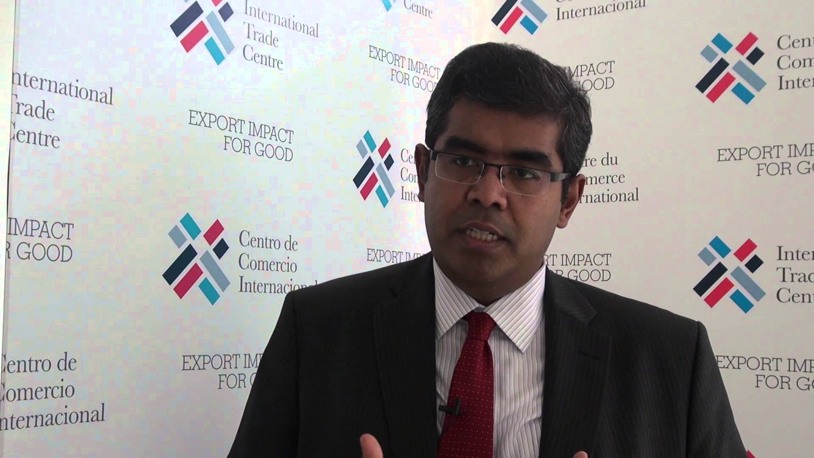

Ajkerdeal, one of the leading e-commerce marketplaces in the country, has big plans to take e-commerce to the remote parts of the country. It has already started to deploy agents in different parts of the country who will sell products from its platform on its behalf in exchange for a small cut of the commission it gets from the merchants. The company has also inked a partnership with at least two companies who have an active distribution network or agents in different remote parts of the country.
At present, the marketplace has agents in 12 districts who visit local shops with a tab and get wholesale orders from these sellers. Since these shops don’t have access to Dhaka market, they can easily buy from Ajkerdeal platform instead of coming to Dhaka, said Fahim Mashroor, CEO of the company.
[blockquote source="Fahim Mashroor, CEO of Ajkerdeal"]“70% of our orders come from outside of Dhaka. The market outside is way bigger than Dhaka. Most importantly, e-commerce is an important utility for people living outside Dhaka who don’t have access to shops, and essential products that are only available in Dhaka or metros.[/blockquote]
It has partnered with PayWell, the payment and service aggregation company, which has around 2500 agents across the country. The company is also working with iSocial, a spinoff of Dnet, in order to use its infolady entrepreneurs as its agents.
“70% of our orders come from outside of Dhaka,” says Fahim Mashroor. “the market outside is way bigger than Dhaka. Most importantly, e-commerce is an important utility for people living outside Dhaka who don’t have access to shops, and essential products that are only available in Dhaka or metros. Now with the power of e-commerce, they can also enjoy the benefits of access to a rich and important collection of products saving time and money.”
Taobao of Bangladesh
Originally started as a deals platform, AjkerDeal has evolved into a managed marketplace over the last couple of years. It has opened up its platform to merchants in exchange for a small commission of 8% to 10%, depending on the type of product. However, unlike many marketplaces, it invests in managing customer experience and does not allow merchants without proper screening.
“We don’t handle any inventory," says Fahim Mashroor, “and we don’t want to. Rather we want to be a marketplace where merchants can come and find buyers.” However, the company helps its merchants with logistics and service development. “We are trying to create a logistics consortium so that we can ensure the last mile delivery.” Logistics remains a key challenge for e-commerce companies, particularly outside Dhaka, Mashroor observed.
The company has now 2000 merchants on its platform and over a hundred thousand products. Its merchants handle over 1000 orders a day. The company has been investing heavily to make the platform more user-friendly.
Customer experience
One of the major challenges for any merchant-led managed marketplace is managing the customer experience. There are marketplaces that are struggling big time in managing the experience of end-users, as their merchants do very little to take care of that part of the experience. Fahim is aware of this challenge.
“We have already taken measures to tackle this,” says Fahim. AjkerDeal has merchant scoring system. “You can rate a merchant on our platform. We also take direct feedback from customers on experience while also helping merchants to get better at what they do including logistics.”
The company is working hard on customers complaints management. There is a public scoring system on AjkerDeal platform, any user can rate a merchant which fundamentally dictates how the merchant get treated on the platform i.e. ranking and visibility on the website. “We even release merchants who fail to meet our standard and receive bad customers review", Fahim added.
[blockquote source="Fahim Mashroor"]We have already taken measures to tackle this.You can rate a merchant on our platform. We also take direct feedback from customers on experience. [/blockquote]
Not dying in Dhaka
Finally, AjkerDeal makes it clear that it wants to become the Taobao of Bangladesh. The company aims to be the platform for businesses, merchants it calls, to allow them to use the platform to reach out to customers and sell their products. It is now investing heavily in its mobile app in order to secure a leading position in ongoing mobile user surge, spending in digital platforms including Facebook to local popular sites to acquire more customers.
While acquiring new merchants and adding more products to its platform remains a key metric for the platform, Fahim also understands the challenge of ensuring enough sales for the merchants, so that they use the platform more seriously and it makes sense for them. Hence, acquiring more end-users cum shoppers is also a key priority for the company. This is where 'going beyond metropolitan cities' and 'reaching out to people outside the grid' will add material value. “This is where growth lies", Fahim concluded.
[blockquote source="Fahim Mashroor"]This is (out of Dhaka) where growth lies.[/blockquote]
E-commerce is one of the most talked about sectors in Dhaka’s tech space. Despite the hype, it is hard to identify a leader in the market. There is an overall lack of trust in online businesses as well. Most companies are struggling to scale, either because they are failing to get enough customers or because they are not capable enough to manage scale. Most companies are also struggling with finding a right model in-between inventory-led model to mixed one where they both manage inventory and also allow merchants to ship.
Multinational players like Daraz and Kaymu, both Rocket Internet companies, has also downgraded their game in the recent times. That said, there is a solid gap for a marketplace that can bring sells for merchants, manage customer experience, and also can cover beyond Dhaka. It seems AjkerDeal, with new investment in their pocket, aims to get that space.
Update: The story misspelled the name of Ajkerdeal, it has been corrected.
